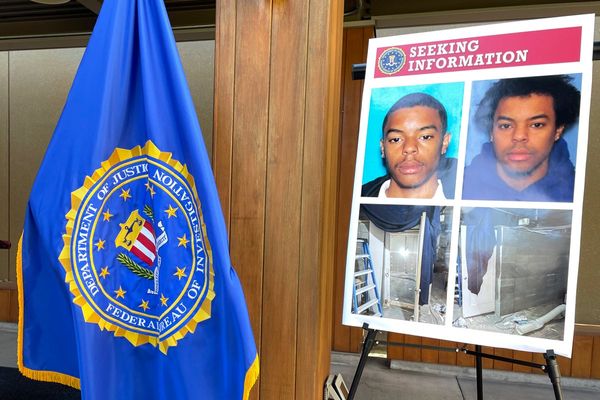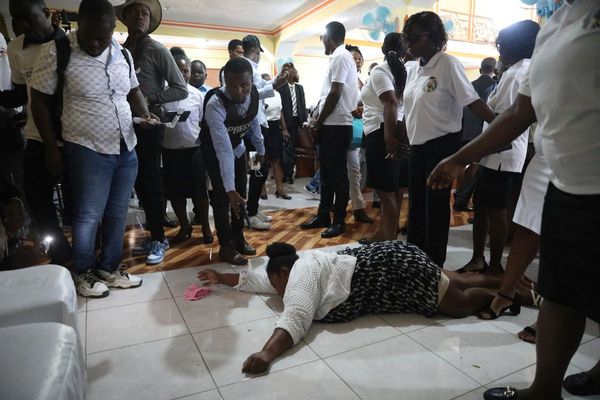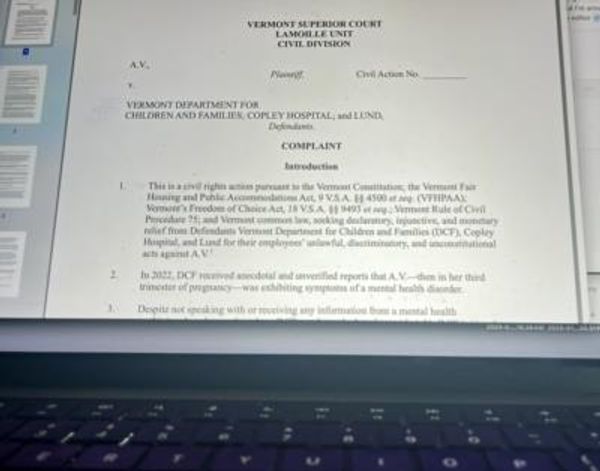
Reading the Making Queensland Safer Bill, the David Crisafulli-led government’s omnibus delivery on its election promise to save the state from its own children, one experiences something Dante-esque — a descent, in any event.
Full credit to the drafters, they’ve left no stone unturned — which is fitting if you’re trying to recreate what you imagine Stone Age justice looked like.
The government would find that metaphor offensive, since it implies a similarity between the values of prehistoric men and those of the Old Testament. To which I’d respond, if the hairshirt fits, wear it.
In fairness to Crisafulli, the apocalypse this bill is seeking to prevent must be a bad one, given the preponderance of Trumpian capitalisation in his policy position; “Adult Crime, Adult Time” is the mantra, to “turn the tide on the Youth Crime Crisis”. But don’t worry, there’s a bit of New Testament as well, with the promised complementary plans for “Gold Standard Early Intervention” (later).
Desperate times, you know, notwithstanding the actual statistics that show youth violent crime has been on the decrease in Queensland. To underline the existential nature of the threat — being murdered in your bed by children whose eyes glow in the dark — the state Attorney-General Deb Frecklington signed off on the bill’s required statement of compatibility with human rights with this line for the ages:
[The bill] is not compatible with the human rights protected by the Human Rights Act 2019.
Funnily enough, Queensland actually has a law put in place specifically to protect some basic human rights, which makes it an outlier in this human rights desert of a country. Turns out, however, they’re only optional.
As Frecklington’s statement confirms, “the amendments are in conflict with international standards regarding the best interests of the child with respect to children in the justice system, and are therefore incompatible with human rights”.
What are these amendments? They are many, but here are the highlights.
- Adult crime, adult time means what it says. From now on, if a child (as young as 10) is convicted of a serious offence including murder, manslaughter, inflicting grievous bodily harm, serious assault, robbery, burglary, unlawful entry or stealing a car, they’ll be facing the same potential sentences as adults — including the applicable mandatory minimum terms. Potentially, some very small children might be copping life sentences.
- The principle of detention being a last resort for children goes out the window, along with the notion that non-custodial orders might be better than prison.
- The interests of victims will take on higher priority in sentencing decisions.
- The protections on a person’s childhood criminal history are removed, so it takes on the same status as their adult record.
- Also out are the protections against children being held in adult correctional facilities.
- Childrens Court proceedings will now be as open to the media and victims and their families as adult criminal cases.
You’d have to read the actual bill to get the full picture. These are not random tweaks drafted as a sop to the Murdoch media and victims’ rights groups. This is a concerted, considered effort to fundamentally change an aspect of the criminal justice system that’s been evolving in the opposite direction since the mid-19th century when the English started to get squeamish about hanging (or, ironically, transporting to Australia) children.
Observers of the Liberal National Party’s own evolution and gradual takeover of conservative politics in Australia will not be surprised; the LNP now controls the federal opposition and its leader Peter Dutton is distinctly medieval in his conceptions of justice.
It’s also part of a trend emergent in much of the Western world, particularly America where many of its states are very consciously attempting to turn themselves into full Christian theocracies.
Through all Australian states, there has been a distinctly illiberal tenor to the law-and-order debate for a long time, manifesting in all kinds of assaults on basic rights and freedoms. These include the proliferation of post-sentence and pre-crime detention laws, insanely oppressive anti-protest laws, and the endless demand for no accused to ever get bail.
This northern excess is, however, of a different scale. It’s a retrograde step that doesn’t seek to redress a balance but wipe out a distinction altogether. That is the principle that children are different from adults, such that when they do wrong it is more likely because of a failure of society than their own fully formed responsible choice.
The last time our society accepted the idea that children can be judged evil by virtue of their acts, with no further enquiry needing to be made, was a couple of hundred years ago. The clock is being turned back a long, long way.
It is no surprise that abortion was raised during the Queensland campaign, and Dutton’s attempts to quash it won’t go longer than he needs for federal election purposes. I predict that it won’t be long before the first Queensland politician decides the time is ripe for a new conversation about another ancient idea: capital punishment. An Eye For An Eye may also be music to some Old Testament ears.
Do you support Queensland’s approach to child crime, or does it go too far? Write to us at letters@crikey.com.au. Please include your full name to be considered for publication in Crikey’s Your Say. We reserve the right to edit for length and clarity.







